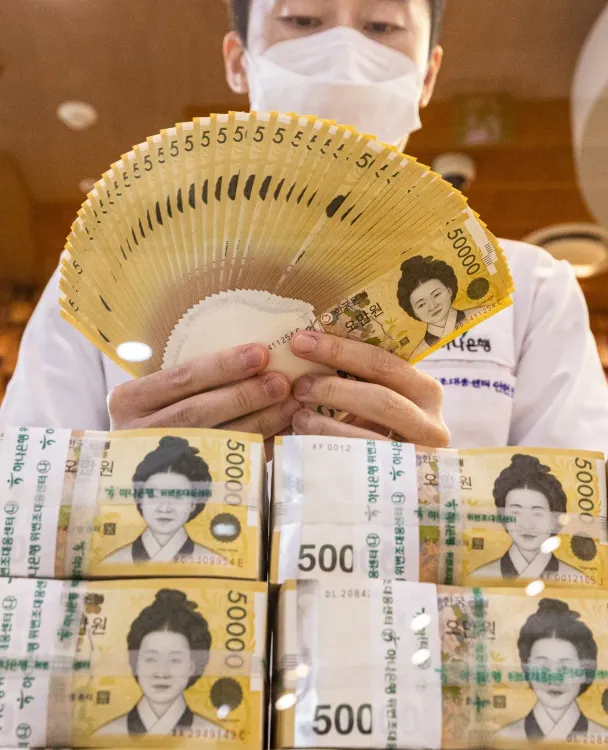Have Foreign Currency Deposits in South Korea Increased for the First Time in 4 Months?

Synopsis
Key Takeaways
- Foreign currency deposits in South Korea increased for the first time in four months.
- Outstanding deposits reached US$101.36 billion by the end of May.
- Corporate deposits rose by $4.6 billion while individual deposits increased by $500 million.
- Dollar-denominated deposits significantly contributed to this rise.
- South Korean companies showed a slowdown in growth despite improved profitability.
Seoul, June 23 (NationPress) Foreign currency deposits in South Korea saw a rise for the first time in four months during May, influenced by higher deposits at securities firms and the temporary allocation of corporate overseas investment funds, according to data released by the central bank on Monday.
As of the end of May, total outstanding foreign currency-denominated deposits held by residents reached US$101.36 billion, reflecting an increase of $5.1 billion compared to the previous month, based on information from the Bank of Korea (BOK).
This marks the first month-on-month increase since January, as reported by Yonhap news agency.
Residents encompass South Korean nationals, foreigners residing in the country for over six months, and foreign enterprises. Notably, this data excludes interbank foreign currency deposits.
Corporate foreign currency deposits rose by $4.6 billion month-on-month to $87.01 billion, while individual holdings increased by $500 million to $14.35 billion.
In terms of currency, dollar-denominated deposits surged by $4.54 billion to $85.54 billion, propelled by a rise in investor deposits at securities firms and temporary placements of overseas investment funds by certain companies, the BOK indicated.
Euro-denominated deposits remained almost stable at $5.09 billion.
Deposits in Japanese yen increased by $560 million to $8.43 billion, while deposits in Chinese yuan decreased by $190 million to $980 million, primarily due to current transaction payments, as per the central bank's report.
Simultaneously, the overall growth momentum for South Korean companies weakened in the first quarter, although slight improvements were noted in profitability and financial stability, according to central bank data released on Monday.
Combined sales from 23,137 companies subject to external audits increased by 2.4 percent year-on-year during the January-March timeframe, a decrease from a 3.5 percent rise in the previous quarter, based on data from the Bank of Korea (BOK).
Manufacturing sector companies reported 2.8 percent sales growth in the first quarter, down from a 3.8 percent increase one year earlier, while the non-manufacturing sector saw sales growth slow to 1.9 percent from 3.1 percent during the same timeframe.
"The slowdown was linked to decreasing export growth focused on memory chips and intensified competition from low-cost Chinese products," a BOK representative commented.
"In the non-manufacturing sector, declining maritime freight rates and reduced domestic housing construction have contributed to slower sales growth in transportation and construction industries," he added.









